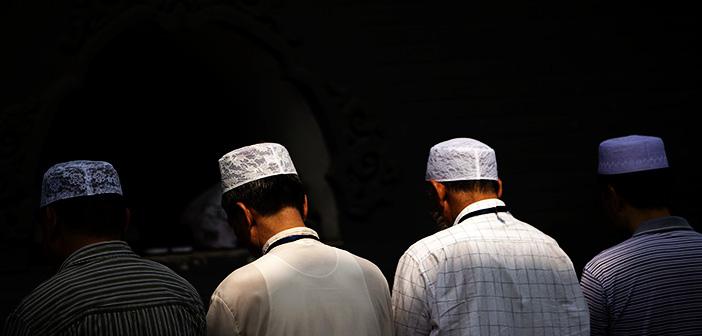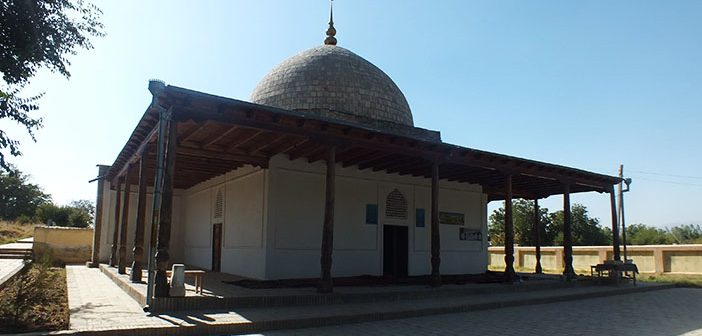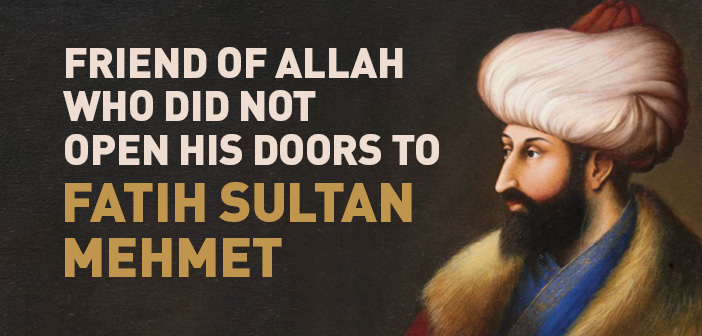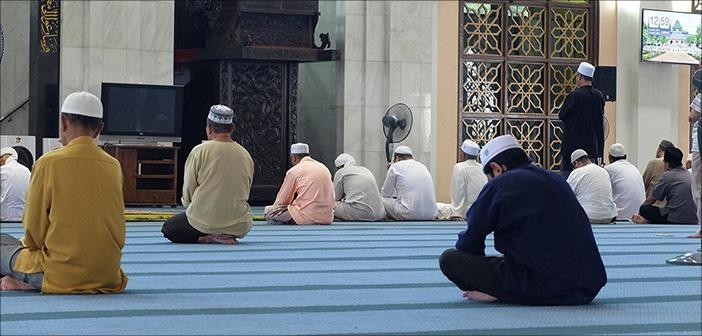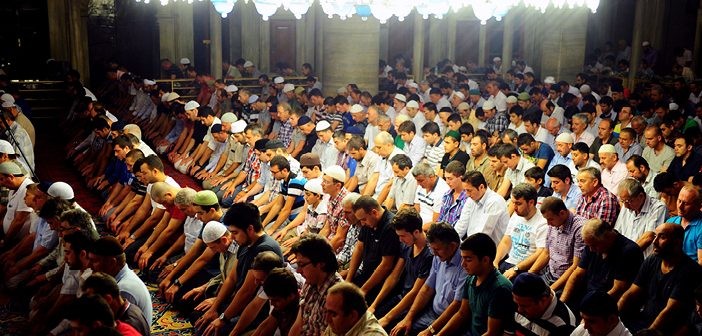
Fast and Find Both Spiritual and Physical Health
The holy month of Ramadan is a month of opportunity for reward granted to us from Allah, the Almighty. In this month we remember the value of the favors Allah has given to us, which we normally take for granted and for which we do not give sufficient thanks.
The aim of fasting is to achieve taqwa (awe) and curb the selfish soul (nafs), to discipline it and bring it under control. Fasting must be performed in an attitude of worship if we really wish to benefit from its blessings. Because of fasting we can attain high qualities such as patience, a strong will, distancing ourselves from the base desires of the nafs. Like a shield, fasting also protects the honor of the believer by freeing him from the endless preoccupation for eating and drinking like the beasts.
One of the benefits of fasting is that it gives courage and resistance in times of famine and calamities. It also teaches us to be thankful and happy with the bounties of Allah, the Almighty. When we fast we understand the difficulties of the poor who suffer from lack of food, and as a result, our mercy for them is strengthened. This kind of understanding prevents social disturbances and class divisions. We can safely say that the nature of Islamic worship does not permit the class divisions we witness in other nations. Fasting(saum) and prayer (salât / namaz) make everyone equal in front of Allah. No one is exempted from these forms of worship except those who have a valid excuse.
Because of these positive effects of fasting, it was prescribed not only for Muslims but also for the previous nations. Allah, the Almighty, says:
“O you who believe! Fasting is prescribed for you, as it was prescribed for those before you, so that you may guard (against evil). For a certain number of days” (Baqara, 2:183-184)
Islam prescribes a variety of styles of worship for the believers. Different kinds of worship in Islam are meant to cure different kinds of spiritual diseases. These diseases increase especially in the easy times of prosperity and health. In the Meccan period, Muslims did not have a chance to develop such spiritual diseases, because the struggle to survive under such difficult conditions occupied them. However, after the emigration to Madinah the financial situation of the Muslims improved. They were also safe from the persecution of the Meccan non-believers. In order to prevent Muslims from the harm that can come with the abuse of wealth and the enjoyment of bounties there was a need for a kind of abstention or restriction for using worldly possessions. It was time for fasting to be ordained in order to preserve the spiritual health of the believers.
As a matter of fact, fasting is like a medicine against the diseases, whether physical or spiritual. Hence, fasting is prescribed for a limited number of days, not for the entire year. If certain medicines for acute conditions are used all year the immune system of the body can get accustomed to it and it may not sufficiently benefit the user. Similarly, fasting should be carried out in determined times. If we fast continuously it does not help much to cure the illnesses and may weaken the body to the point of making it difficult to fulfill the normal responsibilities that Islam requires. Due to this reason, the Prophet (J) did not allow his companions to fast every day.
All Muslims are obliged to fast in the same month of the year, that is Ramadhan. This strengthens the bonds of unity in the Ummah as well as making fasting easier. This sense of unity gives our spiritual life extra richness and vividness. Another aspect of fasting is that the month of fasting is a lunar month. Hence it moves from one season to another throughout the solar calendar, and we fast on hot summer days as well as on short and cold winter days. Because each day of the year pays respect to Ramadan in a certain period, they are all blessed by it. This variety in the times of fasting also gives a variety of spiritual pleasure and tastes. This makes fasting easy and a different experience each time a believer fasts. We can see this richness also in the verse, which commands fasting. The verse first informs us:
“O you who believe! Fasting is prescribed for you”, then in order to comfort us the verse states that it is also prescribed for other nations: “as it was prescribed for those before you” Finally the verse states that fasting is not meant for all the days of the year: “For a certain number of days;”(Baqara, 2:183-184)
After that, Allah, the Almighty, states the benefits of fasting, and its conditions:
“The month of Ramadhan in which was revealed the Qur’an, (is) a guidance for mankind, and a clear proof of the guidance, and the Criterion (of right and wrong). And whosoever of you is present, let him fast the month, and whosoever of you is sick or on a journey, (let him fast the same) number of other days. Allah desireth for you ease; He desireth not hardship for you; and (He desireth) that ye should complete the period, and that ye should magnify Allah for having guided you, and that you may give thanks..” (Baqara, 2:185)
This verse also shows us that the aim of fasting is to glorify Allah and to give him thanks. In this sense fasting has a positive influence on the rest of other kinds of worship. Shakik Balkhi says: “Worshipping Allah as he deserves is a difficult art. However, it can be achieved through solitude and fasting.”
Reducing the intake of food is also a modern method of medical treatment. Dieting is the first condition of being healthy, even in the practice of modern medicine. By fasting the believers follow it in the best way, learning self-discipline.
Hunger is also a strong medicine, with which to control the nafs. It was narrated that when the nafs was created it had pride: It dared to say its Lord: “You are you and I am I.” However, when Allah punished it with hunger it understood its mistake and professed its weakness and nothingness in front of its Creator. Hence for the health of the nafs there is no better cure than hunger.
Jalaladdin Rumi says: “The real nourishment of man is the light of Allah. Giving excessive material food is not good for him. The real food of man is Divine love and intelligence.
The discomfort of man is due to his forgetting his soul’s nourishment and caring only for the nourishment of the body. This body is not satisfied. (It wants more and more) Because of this disease of greediness his face is pale and legs are shaky, his heart is beating with discomfort. Where is the worldly nourishment and where is the nourishment of infinity? (How great the difference between them)”
Allah said for the martyrs: “They are nurtured”. There is no mouth and no body for this nourishment (they are taken by the soul).
Hadrat Lokman advises his son: When your stomach is full, your intelligence sleeps oblivious to wisdom and the limbs are lazy for worship.
A friend of Allah said: I take refuge in Allah from the Sufi who fills his stomach with all sorts of food and corrupts it.
The Mother of believers, Aisha said: Try to open the doors of the malakût (spiritual world). They asked: How? She answered: Through hunger and thirst.
The great friend of Allah Mahmud Sami Ramazanoghlu emphasizes the significance of eating and drinking little in his book Mukerrem Insan (The Perfect Man) and says: “They asked the doctors: What is the best cure, they answered: Eating little. The people of wisdom are asked how they found so much power and courage for worshipping Allah. They answered: Eating little. The ascetics are asked: What makes the tie between man and Allah stronger: They answered: Eating little. The scholars are asked: What is the best state for learning. They answered: being in a state of hunger (rather than satiety) and eating little.“
There are so many benefits in eating little (never eating until the stomach is filled):
- 1. In moderate hunger there is clearness of mind and heart; the memory is stronger. In the state of being overly full, there is forgetfulness and foolishness.
- 2. In moderate hunger there is gentleness of the heart. The heart benefits and takes pleasure from worship and supplication. With a full stomach the heart is insensitive and takes no pleasure in worship.
- 3. In moderate hunger there is softness of heart and humility. Satiety produces insolence, conceit, pride and bragging.
- 4. In moderate hunger one thinks of the poor and hungry, whereas a man with a full stomach never remembers the poor and the needy.
- 5. In moderate hunger the appetite, needs and wishes of the animal soul are broken. When full the animal soul is strong and the desires find strength.
- 6. In moderate hunger the body is in an agile and aware condition. When full it feels sleepy and careless.
- 7. In moderate hunger one feels ready to worship and give service to Allah. When the stomach is full one feels lazy and lax.
- 8. In moderate hunger, the body is healthier. Sickness disappears. Overeating makes the body feel worn out and sick.
- 9. In moderate hunger the body feels light and spacious making, one cheerful.
- 10. In moderate hunger one feels more generous and ready to provide support for the poor with charity. . On the other hand those who do not experience hunger at all, do not understand the sufferings of the poor. Also, for this, in the heat on the fearful Day of Judgment, the servant will come into a state of coolness and shade. Fullness produces a state that goes from stinginess to wasteful spending which leads to the destruction of the servant.
In other words, a full stomach urges the animal soul and ego to be active in order to satisfy its base desires. On the other hand, fasting when it is performed without going to the extreme opens up the faculties of meditation and makes the human heart more sensitive to the Divine realities. The following hadith summarizes what we have said so far: “Fast and find (both spiritual and physical) health.” (Taberani)
Source: Sheikh Osman Nuri Topbaş





